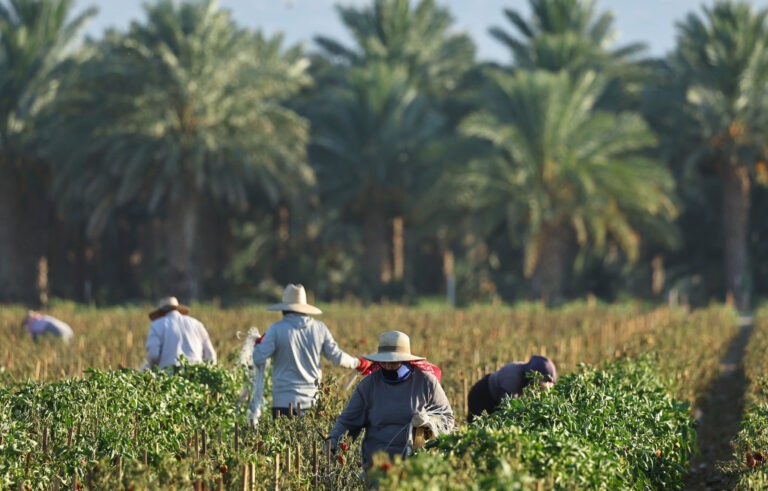
As American farms face mounting challenges, President Trump's proposed mass deportation of undocumented immigrants threatens to destabilize the agricultural workforce, potentially impacting domestic food production.
Recent data from the U.S. Department of Agriculture reveals a concerning 7% decline in American farms between 2017 and 2022, with approximately 142,000 farms closing their doors. Against this backdrop, farmers now grapple with the possibility of losing a substantial portion of their workforce.
According to USDA statistics, over two-thirds of U.S. crop workers are foreign-born, with an estimated 42% being undocumented migrants. This reality puts many agricultural operations at risk under stricter immigration enforcement.
"Anything that happens from a policy standpoint that reduces people in our workforce is going to make it very difficult for industry and certainly for agriculture," warns New Jersey farmer Kurt Alstede. "We would be in big trouble if we lost workforce."
The labor shortage concerns extend beyond individual farms. University of Montana economist Diane Charlton predicts that workforce reductions could lead to decreased domestic produce production. While consumers might not see immediate impacts due to existing import channels, the shift away from U.S.-grown fruits and vegetables could accelerate.
Farm workers' advocates report growing anxiety within agricultural communities. The United Farm Workers union has noted an increase in migrants seeking assistance amid deportation fears. "The threats are scary, but farm workers, more than anyone, understand the reality that without them, this work is not gonna get done," says UFW communications director Antonio De Loera.
While the White House maintains its focus on "deporting migrant criminals," the broader implications for America's agricultural sector remain unclear. What is certain is that farmers like New York's Nate Chittenden, who describes farming as "a 24-hour job," face mounting uncertainty about maintaining the workforce needed to keep their operations running.
The agricultural industry already battles multiple challenges, including climate change, bird flu outbreaks, and rising costs for essential materials. The potential loss of workers through mass deportation adds another layer of complexity to an already stressed farming sector.